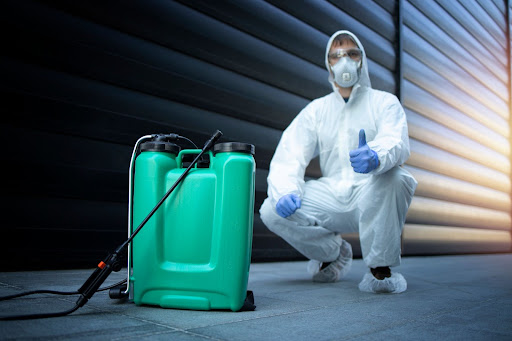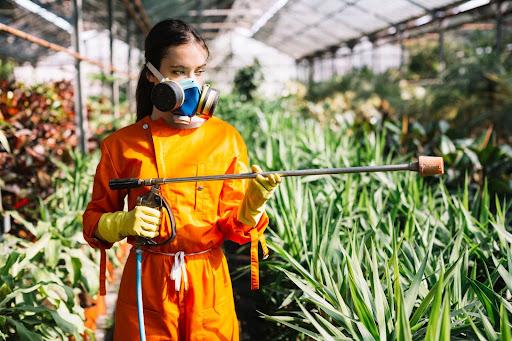Introduction
In the agricultural industry, pest control plays a vital role in protecting crops and livestock from damage caused by various pests. The men and women who work tirelessly in this field can be considered true heroes, as they safeguard the world’s food supply and ensure the well-being of livestock.
Here below discussion will explore the main role of pest control heroes in agriculture and how their efforts contribute to the sustainability and productivity of farming operations.
- Understanding the Impact of Pests on Agriculture
Pests, including insects, rodents, birds, and plant diseases, pose a significant threat to agricultural productivity. They can damage crops, reduce yields, contaminate food, and spread diseases among livestock. Pest control heroes understand the biology, behavior, and life cycles of these pests, enabling them to implement effective control strategies.
- Integrated Pest Management (IPM) Approach
Pest control heroes in agriculture follow an integrated pest management approach. This holistic and environmentally friendly approach aims to minimize the use of pesticides while ensuring effective pest control. IPM focuses on preventive measures, monitoring, and the use of biological, cultural, and chemical control methods when necessary. Pest control heroes utilize their knowledge and expertise to develop customized IPM plans for specific crops and farming systems.
- Early Detection and Monitoring
Effective pest control in agriculture relies on early detection and monitoring. Pest control heroes are vigilant in observing signs of pest infestations, such as visual damage, pest presence, or unusual plant growth. They employ various monitoring techniques, including traps, pheromone lures, and remote sensing technologies, to assess pest populations and their potential impact on crops and livestock.
- Implementing Sustainable Pest Control Practices
Pest control heroes in agriculture prioritize sustainable pest control practices. They strive to minimize the use of chemical pesticides and employ alternative methods whenever possible. This includes the use of biological control agents, such as beneficial insects, nematodes, and microbial pesticides. By implementing sustainable practices, they reduce the environmental impact and promote long-term agricultural sustainability.
- Adapting to Changing Pest Dynamics
Pest control heroes in agriculture must constantly adapt to changing pest dynamics. Pests can develop resistance to pesticides, and new pest species may emerge or migrate to different regions. Pest control heroes stay informed about emerging threats and advancements in pest control technologies. They continuously update their knowledge and skills to effectively address evolving pest challenges.

- Collaborating with Farmers and Agricultural Experts
Pest control heroes work closely with farmers, agricultural experts, and extension services. They collaborate to develop pest control strategies tailored to specific farm operations. This collaboration ensures that pest control measures align with sustainable farming practices and regulatory requirements. By fostering partnerships, pest control heroes create a collective effort to protect crops and livestock.
- Educating Farmers and Promoting Best Practices
Pest control heroes play a vital role in educating farmers about pest management practices and the importance of proactive pest control measures. They provide guidance on implementing preventive measures, maintaining proper hygiene, and identifying early signs of pest infestations. By sharing their expertise and knowledge, pest control heroes empower farmers to take proactive measures and make informed decisions.
- Supporting Food Safety and Quality Assurance
Pest control heroes contribute to maintaining food safety and quality assurance standards in agriculture. They help farmers meet regulatory requirements and implement good agricultural practices to minimize the risk of pesticide residues and pest-related contamination. By ensuring the health and well-being of crops and livestock, they play a crucial role in providing consumers with safe and high-quality food products.
- Protecting Livestock Health and Welfare
In addition to crop protection, pest control heroes in agriculture focus on protecting livestock health and welfare. They implement pest control measures to prevent diseases transmitted by pests, such as ticks, fleas, and flies. By addressing pest-related health risks, they promote animal welfare and contribute to the sustainable and humane management of livestock.
Concluding Words
Pest control heroes in agriculture are the unsung heroes who work tirelessly to protect crops and livestock from the detrimental impact of pests. Through their knowledge, expertise, and dedication, they contribute to the sustainability and productivity of farming operations. By following integrated pest management approaches, adapting to changing pest dynamics, and collaborating with farmers and agricultural experts, these heroes ensure the well-being of agricultural systems. Their efforts safeguard the world’s food supply, promote environmental sustainability, and support the livelihoods of farmers. We owe a debt of gratitude to these pest control heroes in agriculture for their invaluable contributions to our society.





